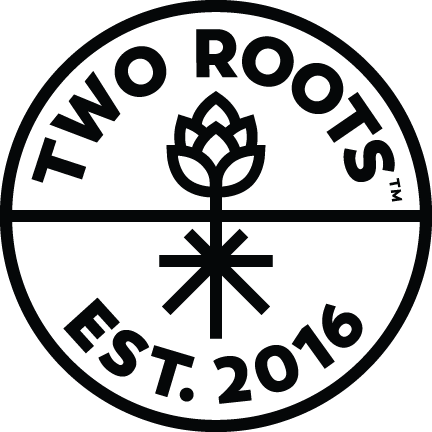Summary – 1 Minute Read.
Jungle Cake THCa, a high-THCa cannabis strain, highlights the evolving trend towards non-psychoactive cannabinoids with significant therapeutic potential. This strain is notable for its possible medical applications, including anti-inflammatory and neuroprotective properties, and benefits from advanced cultivation techniques that enhance potency and yield. Consumer interest in specialized, non-psychoactive products is growing, influencing market dynamics and regulatory landscapes as legalization spreads. Jungle Cake THCa exemplifies the industry’s innovation and future possibilities in cannabis science.
Jungle Cake THCa: The Future of Cannabis Cultivation and Consumption
As the cannabis industry continues to evolve, the emergence of new and potent strains like Jungle Cake THCa is capturing the attention of enthusiasts and experts alike. This particular strain, known for its high tetrahydrocannabinolic acid (THCa) content, offers a glimpse into the future possibilities of cannabis cultivation and consumption.
The Rise of THCa Dominant Strains
Jungle Cake THCa represents a growing trend towards high-THCa strains. Unlike THC, which is psychoactive, THCa is non-psychoactive until it undergoes decarboxylation through heat. This characteristic opens up intriguing possibilities for both recreational users and medical patients who seek the therapeutic benefits without the high. With more consumers searching for “THCa Near Me,” it’s clear that demand is on the rise.
Potential Medical Applications
The potential medical applications of THCa are vast and still being explored. Preliminary studies suggest that THCa may have anti-inflammatory, neuroprotective, and anti-emetic properties. As research progresses, we could see Jungle Cake THCa or similar strains becoming integral in treating conditions such as epilepsy, chronic pain, and even neurodegenerative diseases.
Cultivation Innovations
The cultivation techniques for high-THCa strains like Jungle Cake are also evolving rapidly. Advanced genetic engineering and selective breeding are producing plants with unprecedented cannabinoid profiles. These innovations not only enhance potency but also improve yield, disease resistance, and overall plant health. As these methods become more refined, we can expect an increase in availability and quality of high-THCa products.
Callout: The future of cannabis cultivation lies in harnessing advanced genetics to create strains with specific cannabinoid profiles tailored for diverse consumer needs.
Consumer Trends
Consumer preferences are shifting towards more specialized products that cater to individual needs. High-THCa strains offer a unique experience that appeals to both seasoned users looking for new sensations and newcomers interested in non-psychoactive options. As awareness grows about the distinct benefits of cannabinoids like THCa, market dynamics will likely shift to accommodate this burgeoning interest.
Regulatory Landscape
The regulatory landscape surrounding cannabis is another factor that will shape the future availability and popularity of strains like Jungle Cake THCa. As more states move towards legalization and regulation becomes more standardized, access to high-quality cannabis products will improve significantly. This could lead to increased investment in research and development, further pushing the boundaries of what’s possible with cannabis science.
In conclusion, Jungle Cake THCa is not just another strain; it’s a harbinger of what’s to come in the cannabis world. From its potential medical benefits to its impact on cultivation practices and consumer trends, this strain exemplifies how innovation within the industry can lead to groundbreaking advancements. Keep an eye out as this exciting frontier continues to unfold—there’s much more on the horizon than meets the eye when you search for “THCa Near Me.”
Frequently Asked Questions (FAQs):
Question: What is Jungle Cake THCa known for?
Answer: Its high tetrahydrocannabinolic acid (THCa) content.
Question: How does THCa differ from THC?
Answer: THCa is non-psychoactive until decarboxylated through heat.
Question: What are some potential medical benefits of THCa?
Answer: Anti-inflammatory, neuroprotective, and anti-emetic properties.
Question: How are high-THCa strains cultivated?
Answer: Through advanced genetic engineering and selective breeding.
Question: Why are consumer preferences shifting towards high-THCa strains?
Answer: They offer unique experiences and non-psychoactive options.
Question: How might legalization affect the availability of strains like Jungle Cake THCa?
Answer: It will improve access to high-quality cannabis products.
Question: What role does research play in the development of high-THCa strains?
Answer: It helps explore medical applications and enhances cultivation techniques.
Helpful Links:
- Leafly – A comprehensive resource for cannabis information, including strain reviews, effects, and medical uses.
- Cannabis Business Times – Industry news and insights on cannabis cultivation, business strategies, and regulatory updates.
- Project CBD – An educational platform focused on the therapeutic applications of cannabinoids like THCa and CBD.
- PubMed – A database of scientific studies and articles related to the medical research of cannabinoids.
- High Times – A leading publication covering cannabis culture, trends, and innovations in the industry.
- NORML – Advocacy group providing information on cannabis laws, legal reforms, and consumer rights.
- MJBizDaily – Business news source offering market analysis and reports on the cannabis industry.
Definition:
- Jungle Cake: A specific strain of cannabis known for its balanced hybrid effects and rich, sweet flavor profile.
- THCa: Tetrahydrocannabinolic acid, a non-psychoactive cannabinoid found in raw and live cannabis plants that converts into THC when heated.
- Cannabis Cultivation: The process of growing and harvesting cannabis plants for various uses including medicinal, recreational, and industrial purposes.
- Cannabis Consumption: The various methods by which cannabis is ingested or utilized, such as smoking, vaping, edibles, tinctures, and topicals.





